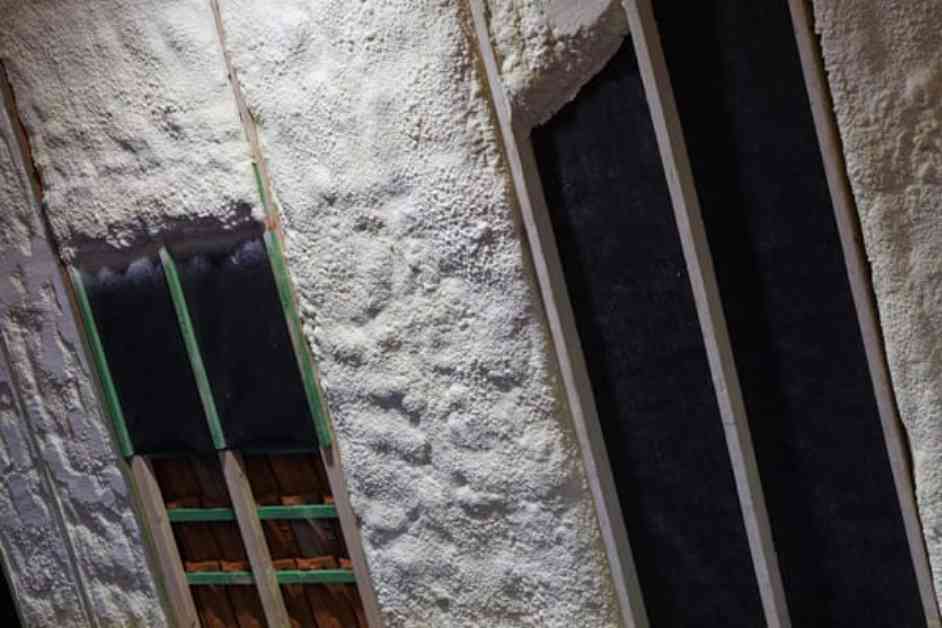Businesses worldwide are facing increasing pressure to achieve net-zero carbon emissions, a goal that has transitioned from a distant aspiration to an urgent priority. In the realm of sustainable infrastructure, insulation has emerged as a critical player in the fight against climate change. With the potential to significantly reduce energy consumption, enhance operational efficiency, and contribute to overall carbon reduction efforts, insulation is now a key focus for companies looking to cut emissions while optimizing costs.
The Impact of Insulation on Net-Zero Goals
In the quest for a net-zero future, businesses are challenged to reduce their carbon footprints without sacrificing productivity. The U.S. Department of Energy reports that poorly insulated buildings are responsible for nearly 40% of total energy consumption worldwide, emphasizing the need for better thermal management solutions. Modern insulation materials like spray foam, mineral wool, and reflective barriers offer businesses the opportunity to make substantial cuts in their energy expenditure. By improving building envelopes, companies can decrease their reliance on HVAC systems, lower greenhouse gas emissions, and take significant steps towards sustainability. This not only results in reduced operational costs but also extends the lifespan of heating and cooling systems, minimizing repair and maintenance expenses.
Furthermore, insulation plays a crucial role in maintaining indoor air quality by creating well-sealed spaces that prevent pollutants, allergens, and humidity from infiltrating business environments. This benefit is particularly valuable for industries that require sterile or controlled atmospheres, such as pharmaceutical companies, technology manufacturers, and data centers.
The Advantages of Spray Foam Insulation
While traditional insulation materials like fiberglass and cellulose have long been staples in the industry, spray foam insulation offers unique benefits that set it apart:
– Superior Energy Efficiency: Spray foam insulation expands upon application, effectively sealing gaps and cracks that traditional materials may leave exposed. This results in higher R-values, ensuring buildings remain well-insulated year-round.
– Moisture and Mold Resistance: The airtight barrier created by spray foam prevents moisture buildup, reducing the risk of mold growth and structural damage. This feature is particularly important for businesses in humid climates or industries where moisture control is essential.
– Longevity and Durability: With a lifespan exceeding 30 years, spray foam outlasts many traditional insulation materials, making it a cost-effective, long-term investment for businesses. Its structural rigidity also provides additional support to buildings, reducing wear and tear over time.
The Role of Insulation in Cost Reduction
The link between energy efficiency and cost savings is undeniable. Studies have shown that businesses investing in high-performance insulation can slash their energy bills by up to 50%, improving financial sustainability and demonstrating a commitment to environmental stewardship. Governments worldwide, including the UK, offer tax incentives and grants to incentivize businesses to adopt energy-efficient solutions. Programs like the UK’s Energy Savings Opportunity Scheme (ESOS) encourage companies to evaluate and optimize their energy usage, with insulation upgrades often ranking among the most impactful recommendations.
In addition to direct energy savings, well-insulated buildings experience lower maintenance costs. HVAC systems operate more efficiently when buildings maintain stable indoor temperatures, reducing the likelihood of breakdowns and costly repairs. This is especially beneficial for businesses with large facilities, warehouses, or manufacturing plants where energy expenses constitute a significant portion of operational costs.
As the global drive towards net-zero intensifies, businesses are urged to explore all avenues to reduce their environmental impact. Insulation, a practical yet potent solution, plays a vital role in promoting energy efficiency, cost savings, and regulatory compliance. Companies that invest in sustainable insulation solutions position themselves to future-proof their operations against escalating energy costs and stricter environmental regulations.
Beyond the financial and environmental benefits, improving insulation can also enhance employee productivity. Research indicates that workplaces with stable, comfortable temperatures foster higher employee satisfaction and productivity. In contrast, poor insulation can lead to fluctuating indoor temperatures, hindering employee focus and potentially increasing absenteeism due to discomfort-related health issues.
For businesses committed to achieving net-zero objectives, investing in high-performance insulation is no longer a choice—it’s a necessity. Those that embrace innovative insulation methods today will not only realize long-term cost reductions but also establish a more sustainable and resilient business model for the future.












